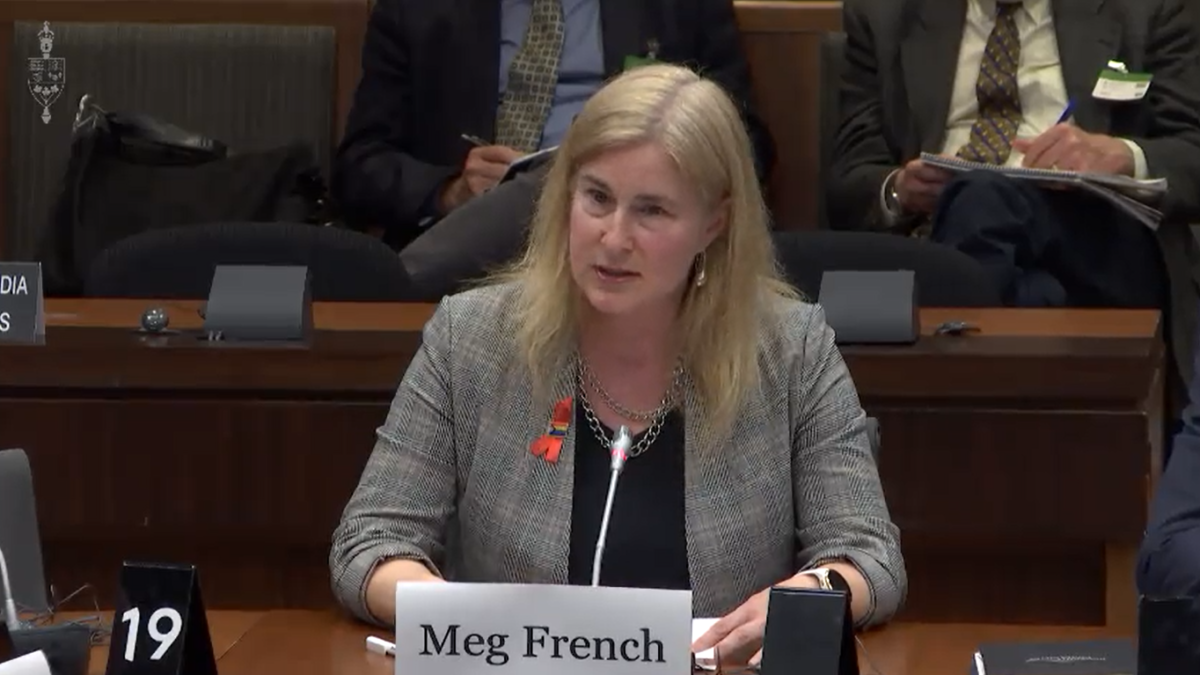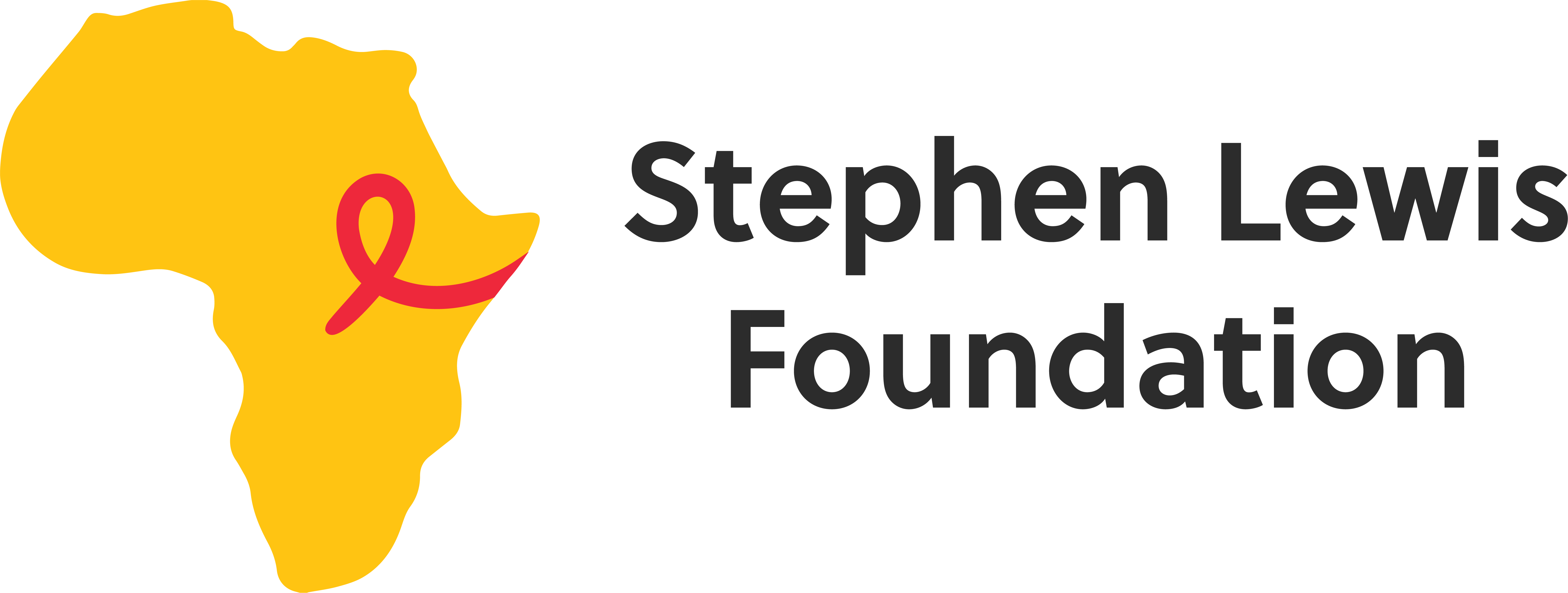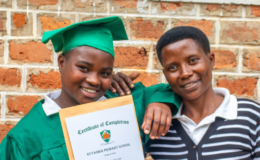
“We haven’t seen sufficient action from Canada in regard to investing in robust civil society organizations in Africa.”
— Meg French, SLF Executive Director
This was the key message Meg French delivered to the House of Commons Standing Committee on Foreign Affairs and International Development on April 15, 2024, as a witness to their study of Canada’s Approach to Africa.
Watch Meg French’s remarks
In her testimony, Meg drew on the Stephen Lewis Foundation (SLF)’s more than 20 years of partnering with community-led organizations in sub-Saharan Africa. She spoke about our work to secure increased investments in health and human rights funding, and our leadership in advocating for Canada to decolonize its approach to international assistance funding.
Even as she leveraged the SLF’s significant experience to call for a transformation in the way Canada engages with the African continent, Meg reminded the committee that their study should centre the expertise of African countries, communities, and civil society organizations.
“I think the question should be asked to the people themselves.... Ultimately, communities know what they need.”
— Meg French, responding to a question about how Canada can address complex issues
Meg’s Remarks on International Assistance, Human Rights and Climate Change
Witness: Meg French, Executive Director, Stephen Lewis Foundation
Date: April 15, 2024
Standing Committee on Foreign Affairs and International Development
Thank you for having me here today. When the Stephen Lewis Foundation (the SLF) was founded in 2003, more than 2 million people were dying of AIDS-related illness every year in the region, most of them people in their 20s, 30s, and 40s.
In the face of this devastation, groups of community members were mobilizing to provide care, support, and dignity to people in their final days of life and to support children and families affected by these deaths. Despite their extensive, exhausting, and vital work, these groups and organizations had minimal access to any of the HIV funding that was starting to flow globally.
Stephen Lewis and his daughter Ilana Landsberg-Lewis started the SLF to mobilize funds to support these community-led organizations. Twenty-one years later, we continue to champion the expertise of communities and the power of civil society.
While the HIV epidemic has changed significantly in those 21 years, the fact remains that the structure of the international HIV response and international aid more broadly has not changed substantially. Donor countries, including Canada, and the organizations that are based in them, continue to hold the power and maintain control over resources.
If you take only one thing from my remarks today, I hope it is this – we need a transformation in the way that Canada relates to Africa in our international cooperation and in broader diplomacy and trade – one that centres the needs and priorities of communities to address poverty reduction, economic growth, and the realization of the human rights.
International Assistance
First let’s look at Canada’s aid. At the OECD DAC, Canada has been vocal in its support for enabling civil society and addressing closing civic space, but we haven’t seen sufficient action from Canada in regards to investing in robust, civil society organizations in Africa.
In fiscal year 2022-2023, a total of about $4.1 billion of Canadian international assistance was allocated through bilateral and multilateral spending for all African countries and for regional initiatives. (By comparison, $5.4 billion went to Ukraine alone that year.)
In order to be a true partner to African countries and their people, Canada needs to significantly increase this number by growing the overall international assistance envelope.
But also, and what I want to focus on here, Canada needs to make sure that significantly more of the aid that is allocated for Africa actually makes it to civil society organizations and movements to support their priorities.
Canada’s international assistance continues to reinforce a colonial relationship with the African continent. Canada must move away from a top-down approach to international assistance to one in which community-led organizations, like the SLF’s partners, have access to flexible, long-term, and core funding.
This will require a whole-of-government approach. There needs to be changes within Treasury Board in addition to changes within Global Affairs Canada to ensure that Canadian international assistance is not wasted on layers of bureaucracy whose very purpose is purportedly to reduce misspending.
The truth is that layers of bureaucracy and fiscal risk aversion mean that tax dollars are tied up in red tape or in paying for program management by international NGOs and multilaterals, rather than facilitating the work of local civil society organizations that have the expertise, relationships, and experience needed to realize health, economic empowerment, and human rights.
Human Rights
The second point I wish to raise is that increases to and improvements in Canada’s international assistance must be accompanied by Canada’s leadership for human rights and public health in multilateral and bilateral spaces. Canada needs to be more outspoken and show leadership in its actions to protect public health and to stop human rights violations.
As an example of Canada’s failure, one can look at Canada’s long history of blocking WTO TRIPS or misusing it—from CAMR to COVID-19—which has cost the lives of far too many African people.
An example that is front of mind for me today is the draconian Anti-Homosexuality Act in Uganda, which Canada has not adequately stood up against, and the recently passed anti-LGBTIQ bill in Ghana.
We must ensure Canadian international assistance funding is not going to groups promoting rights violations in other countries. And more than that, we need a whole-of-government response to human rights crises. How are diplomacy, trade, and aid working together to protect rights? To ensure that civil society organizations in Africa are well-resourced to respond to emergencies and to hold their governments to account? Where is the red tape that prevents Canada from acting when action is needed and how can we remove that red tape? Where is the political will – across parties – to stand up and speak out for what is right?
Climate Change
Finally, I can’t talk about Canada’s relationship to Africa without talking about the disproportionate and devastating impact of climate change on African nations and communities and the lives and livelihoods of African people.
In 2022, the UN reported, “Scientists have long noted that countries in Africa have contributed the least to greenhouse gas emissions, yet climate change threatens to expose up to 118 million of the poorest Africans to droughts, floods and extreme heat by 2030.”
The SLF’s community partners are already grappling with significant impacts of climate change. We have been hearing from partner after partner who need to shift limited funding away from health programming towards climate change adaptation so that their community members can survive droughts and floods.
Canada must step up both in significantly reducing our country’s contributions to climate change and in committing new international assistance dollars towards climate change preparedness, mitigation, and adaption in African communities – supporting solutions designed by Africans for their communities.
“Absolutely we need to be investing more in local, grassroots, community-led work, but that work needs to be led by those organizations with the support of Canadian organizations in true partnership.”


